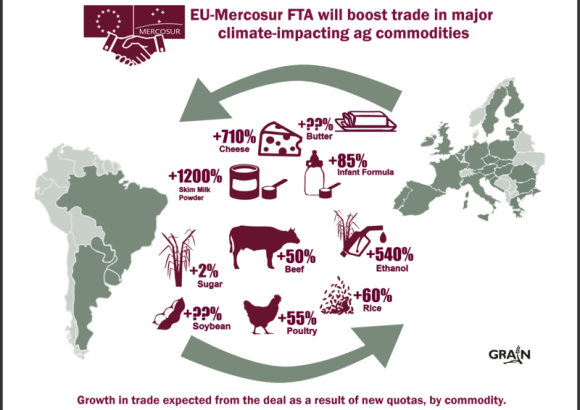
In recent years, EU citizens have become more sensitive to the effects of healthier food, especially from local and organic production chains[1]. It should be noted, though, that in general, healthier food products such as those from organic farming are not accessible to all populations. These products are often sold at a higher price than those from conventional agriculture[2]. The lower social classes of the European population have no choice but to seek minimum costs in their spending. All social classes in Europe should be able to enjoy quality food. It is also necessary to reduce geographical and economic inequalities in access to local organic farming. We advocate that organic farming production must more widespread and become the norm in European food markets. It is also important to put mechanisms in place to enable geographically isolated populations to benefit from organic farming. A system of welfare and increased minimum wages can enable marginalized populations to access organic food. Access to healthy food must be available to all.
On the contrary, we know today that the majority of food products cheaply grown in conventional agriculture do not respect our natural environment and the conditions of the workers.
Soils are increasingly polluted due to the over-intensive use of chemicals for food production. These products, which also pollute waterways and affect biodiversity around production sites, are not without risk to humans, as they are responsible for the increase in diseases such as cancer, leukaemia, and chronic illnesses. The first people to be affected by the polluting consequences of conventional agriculture are the farmers and the people who live close to the sites. This type of agriculture also has consequences for the degradation of the work of farmers who have to be able to produce faster and more efficiently to respond to the competitive agriculture imposed by the EU[3].
According to De Schutter article[4], to allow EU citizens better access to food that best respects our natural environment, EU policies need to be more coherent with each other. The policies that are currently being carried out do not all have the same objectives and are often counterproductive. At the end of 2019, the EU launched programmes such as the European Green Deal[5] to reduce greenhouse gas emissions, while in the same year they signed an economic free trade agreement with the countries from MERCOSUR[6]. This agreement will allow more energy consumption exchange including beef exportations from South America which will increase production and have dramatic consequences for the environment[7]. How can we establish mechanisms that would improve our food supply if environmental issues are not taken into account and austerity policies are strongly advised to EU member states?

All citizens of the European Union must be able to obtain quality food produced increasingly locally to limit unnecessary energy consumption.
European territories must limit the number of intermediaries between consumers and food producers as much as possible. We also need to reconsider our agricultural trading system. Consuming food products that are produced in a distant area, such as soya and meat for example, can cause environmental damage. Such as the case of Brazil where the problem of deforestation has serious consequences for our ecosystem. The forest clearance has a variety of consequences for delivery of the range of ecosystem services that forests supply – carbon storage, production of rainfall, livelihoods for indigenous people, as well as providing a hotspot for biodiversity[8].
By consuming food locally, you contribute financially directly to the producer who can sell his products at a fair price. Local food circuits also help to promote and revitalize rural areas that are being abandoned in favour of the large-scale agri-business production that threatens us. We can see great initiatives from the Community Supported Agriculture (CSA). This initiative “represents new social forms of agriculture which have arisen in recent years while traditional family farms have declined, and industrial agriculture has increased. These new famers involve many local families directly in the decisions and labour which produce the vegetables, fruits, milk, and meat they eat. In that way they re-establish a link between the farm, the farmer, and the consumer[9].”
Local producers who produce organic food help to preserve our natural environment while respecting our health. The implementation of this type of agriculture brings positive benefits for the preservation of the soil, the plants, and the animals that live nearby. We can only encourage the initiatives that already exist and that allow EU citizens to enjoy healthy, organic, and locally produced food.
[1] PRALY Cécile, Proximity supply chains, an analytical framework for the localization of food supply chains, geography, economy and society review, 2014, pp. 455-478.
[2] DE SHUTTER Olivier, A common food policy for Europe : How governance reforms can spark a shift to healthy diets and sustainable food systems, Food Policy review, 2020.
[3] Idem
[4] Idem
[5] https://ec.europa.eu/info/strategy/priorities-2019-2024/european-green-deal_en
[6] https://ec.europa.eu/trade/policy/countries-and-regions/regions/mercosur/
[7] https://grain.org/en/article/6355-eu-mercosur-trade-deal-will-intensify-the-climate-crisis-from-agriculture
[8] https://resourcetrade.earth/publications/food-security-trade-and-its-impacts#footnote-16
[9] Overview of Community Supported Agriculture in Europe, European CSA Research Group, Urgenci, 2015
Marine Nigi, FoE Malta intern

Friends of the Earth Malta gratefully acknowledges financial assistance from the European Union. The contents of this article are the sole responsibility of Friends of the Earth Malta and cannot be regarded as reflecting the opinion of the European Union. The European Parliament cannot be held responsible for any use that may be made of the information contained.”
